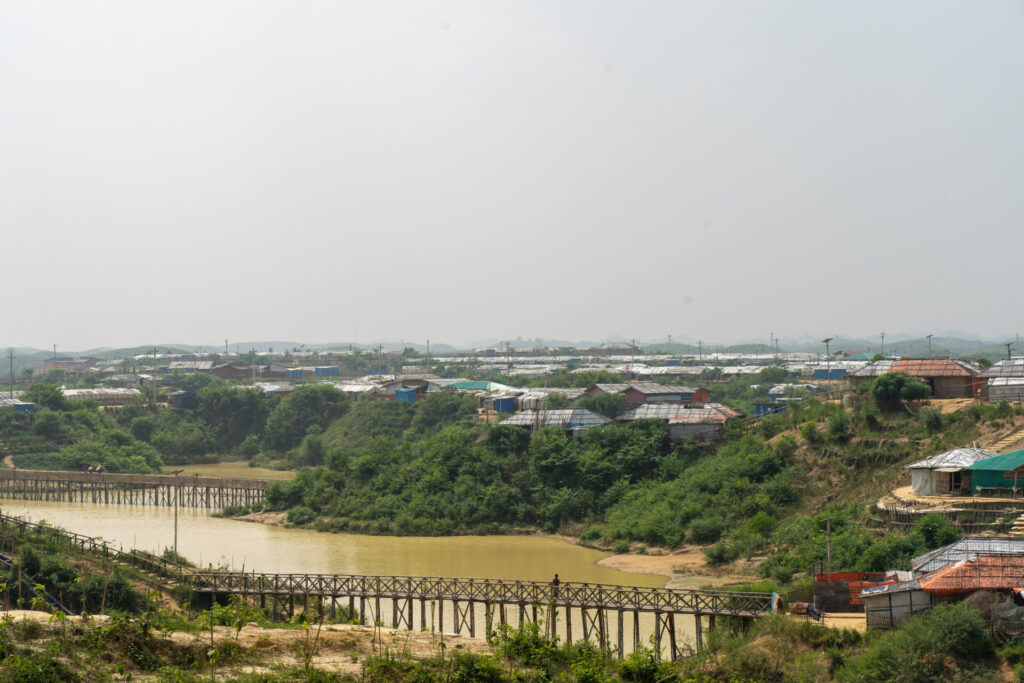As violence intensifies in Myanmar, particularly in Rakhine State, Bangladesh faces a daunting humanitarian challenge that could reshape regional geopolitics. The ongoing conflict, which has displaced over half a million people within Myanmar, threatens to push more Rohingya refugees across the border into Bangladesh, exacerbating an already dire situation in the refugee camps of Cox’s Bazar.

A Looming Humanitarian Crisis
With Bangladesh hosting nearly a million Rohingya since the 2017 exodus, the potential for another large-scale influx is real and immediate. Bangladesh’s government, already burdened by the economic and social strains of accommodating such a vast refugee population, finds itself at a critical juncture. The international community has largely failed to hold Myanmar accountable or provide sufficient support to Dhaka, leaving the country in a precarious position.
The Nobel laureate Dr. Muhammad Yunus, who is now the acting prime minister of Bangladesh is celebrated globally for his work in poverty alleviation through microfinance, and is now confronted with a crisis that demands more than economic innovation—it demands a coordinated humanitarian and geopolitical response.
Dr. Yunus, known for his deep commitment to social justice, recently expressed his concerns about the escalating situation. “The world cannot afford to ignore the plight of the Rohingya any longer,” he said during a recent interview.
“This crisis is not just about refugees; it’s about human dignity, justice, and the very fabric of international law.” Joe Freeman, a researcher with Amnesty International, echoes these concerns, noting the parallels between the current violence and the atrocities of 2017. “As the seven-year anniversary of the Rohingya crisis nears, the horrific situation in Rakhine State looks disturbingly familiar. Rohingya men, women, and children are being killed, towns are emptying out, and vestiges of Rohingya history and identity are being eroded” (Amnesty International).
The situation in Cox’s Bazar, where the sounds of gunfire and explosions from across the border in Myanmar are a daily occurrence, is becoming increasingly untenable. Htway Lwin, a Rohingya human rights activist based in Cox’s Bazar, highlighted the growing fear within the camps. “Rohingya refugees in Bangladesh, already facing immense hardship, are now targeted for forced recruitment by the military through their proxies,” he said. This forced recruitment is not only exacerbating the crisis within the camps but also creating a dangerous new dynamic in the ongoing conflict (The Diplomat).
The international community’s passivity has only emboldened Myanmar’s military, with the United Nations Office for the Coordination of Humanitarian Affairs (OCHA) reporting that the conflict now engulfs over two-thirds of the country (UN News).

Despite this, global attention remains distracted by other crises, leaving Bangladesh to manage this burgeoning catastrophe on its own. Md Himel Rahman, a Dhaka-based international affairs researcher, warned of the broader regional implications of the ongoing violence. “If the [Arakan Army] wins this war, Bangladesh will share borders with an unrecognized statelet. If the [Arakan Army] loses this war, Bangladesh could witness an influx of disguised fighters into its territory,” he explained. This underscores the geopolitical complexity of the situation, where the outcomes of Myanmar’s internal conflict could directly impact Bangladesh’s national security (Voice of America).
For Bangladesh, managing another wave of refugees would not only strain its already overburdened resources but could also destabilize the region further. “The situation deteriorates by the day,” said Mahmudul, a Rohingya humanitarian worker living in the Kutupalong Camp. “There is no safety, no security… Now the refugee camp is like hell for innocent refugees” (The Diplomat).
In the face of such a crisis, Dr. Yunus’s leadership could be pivotal. His approach, which has always emphasized empowerment through economic and social initiatives, might provide a framework for addressing some of the immediate needs of the Rohingya population. However, without significant international intervention and a strategic shift in global priorities, the long-term sustainability of these efforts remains in doubt.
The stakes could not be higher. As Dr. Yunus poignantly stated, “Bangladesh cannot bear this burden alone. The world must act, not just out of compassion, but out of a commitment to justice and human rights.”
The future of the Rohingya, and potentially the stability of the entire region, depends on it.
